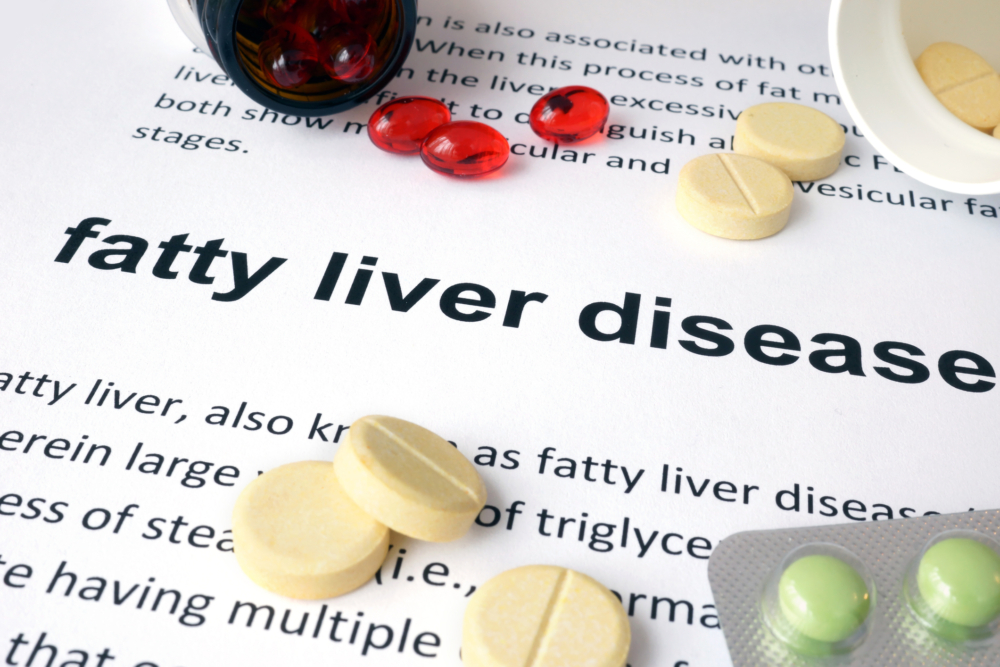Fatty Liver Disease Treatment with a Long Island Dietitian
Fatty liver disease is a chronic condition caused by excess fat buildup in the liver. Over time, this can interfere with how well the liver works and can become dangerous. According to the Global Liver Institute, about 30% of the world’s population lives with some form of fatty liver disease—many without knowing it.
Online medical nutrition therapy (MNT) with a Registered Dietitian Nutritionist (RDN) focuses on evidence-based diet and lifestyle changes to help reduce liver fat, support liver function, and reverse fatty liver disease.
What is Fatty Liver Disease?
Your liver is your largest internal organ. It helps you digest food, store energy, and remove toxins. When fat builds up in the liver—known as steatosis—it can cause inflammation, cell damage, scarring (fibrosis), and severe scarring (cirrhosis). This buildup disrupts key functions like filtering toxins, producing bile, and metabolizing nutrients.
Nonalcoholic fatty liver disease (NAFLD) occurs when fat builds up in the liver of people who drink little or no alcohol. Experts are now using the term metabolic dysfunction-associated steatotic liver disease (MASLD) to better reflect its link to metabolic health issues like obesity and insulin resistance. MASLD encompasses individuals with (fatty liver) who also have at least one of five cardiometabolic risk factors, such as obesity, high blood sugar, high cholesterol, or high blood pressure. Advanced cases may progress to steatohepatitis (MASH), which involves more inflammation and liver damage.
What Are the Symptoms of Fatty Liver Disease?
NAFLD is often called a “silent” disease because it usually causes few or no symptoms. If symptoms appear, they may include fatigue or mild discomfort in the upper right abdomen. Left unmanaged, fatty liver disease can progress to serious liver damage—so it’s important to know your risk and status early.
What are the Risk Factors for Fatty Liver Disease?
Some people are more likely to develop fatty liver disease than others. Risk factors include:
- Type 2 diabetes or insulin resistance
- Prediabetes
- Abnormal triglycerides or cholesterol levels
- High blood pressure
- Overweight or obesity
- Heredity/genetic predisposition
How to Manage Fatty Liver Disease
Healthy lifestyle changes such as weight loss, a healthy diet, and regular exercise, are the cornerstone of treatment. A registered dietitian can help you:
- Lose weight gradually and maintain a healthy weight
- Be more active and exercise regularly
- Manage blood sugar and diabetes
- Lower cholesterol and blood pressure
- Avoid alcohol
- Eat a balanced diet rich in fruits, vegetables, whole grains, and healthy fats
- Limit saturated and trans fats, added sugars, and ultra-processed foods
- Reduce intake of fructose
Why Work with a Dietitian for Fatty Liver Disease?
Nutrition is key to managing and even reversing fatty liver disease. An experienced dietitian will develop a personalized plan to reduce liver fat, improve insulin sensitivity, and help you reach and maintain a healthy weight.
My online medical nutrition therapy (MNT) for Fatty Liver Disease offers:
- Tailored nutrition plans
- Sustainable weight management
- Guidance to reduce liver fat and inflammation
- Help managing related risk factors
- Ongoing support for lasting lifestyle changes
How Does the Gut Microbiome Affect Fatty Liver Disease?
Fatty liver disease is closely linked to gut health. Research shows that changes in the gut microbiome—known as dysbiosis—can worsen liver inflammation and disease progression. A disrupted gut-liver axis allows harmful substances to enter the bloodstream and reach the liver, fueling inflammation.
Individualized nutrition therapy can help restore gut balance, protect your liver, and improve your overall health.
I offer online consultations for patients across Long Island and New York. With over 30 years of experience, I provide evidence-based nutrition therapy tailored to your specific needs. Your plan will be practical, sustainable, and enjoyable—designed to support your unique health goals and help you live well for years to come.
Start your journey to better liver health today.
Further Reading:



